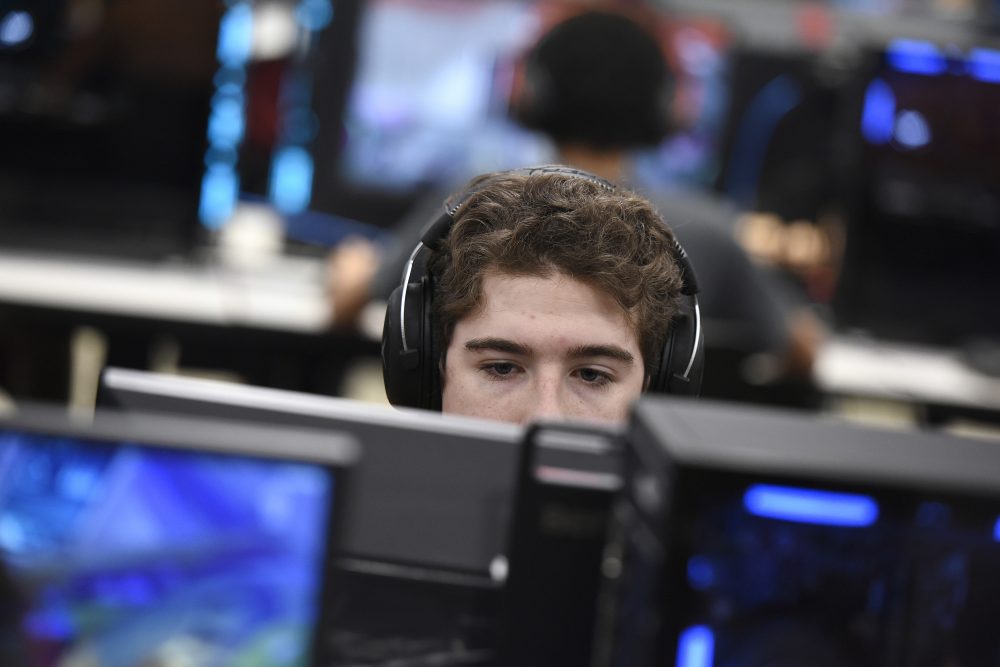Thanks to COVID-19, we haven’t had major U.S. sports in months, and we still aren’t really sure when they’ll return.
Stadiums are empty, so what have people been doing to fill their desire for competition at the highest level? The answer is esports and the $1 billion (and growing) market that comes with it.
A strong AV opportunity during the pandemic
With most professional sports still shut down, people are clinging to sports and competition however they can, and that is pushing gaming and competitive esports further into the mainstream.
Global spending on gaming reached $10 billion in March, good for an 11% increase from March 2019, according to a Nielsen SuperData report that also found global console revenue rose from 64% from February to March, reaching $1.5 billion.
In addition to bringing in revenue to gaming providers like Microsoft, Sony and Nintendo, this increasing interest in an already increasing market can only mean good news for audiovisual integrators who fancy themselves an esports technology partner.
One client of Oklahoma-based integration firm Cory’s Audio Visual was planning a public esports arena from the ground up, but that timeline has been moved up to where the client is now asking for a temporary arena in an existing space.
Read Next: Esports, a Growing Pro AV Market, is Thriving Under the COVID-19 Quarantine
“He wanted to have something ready to open here much sooner than a brand new construction project,” says Cory’s AV CEO Brad Poarch. “He went ahead and put together an existing facility just to capture that audience when they come out to play.”
Two universities under contract with Cory’s AV for esports arenas have also moved up those project timelines since campuses are effectively shut down.
Joshua Kell, CEO of Horizon AVL and subsidiary Esports Integration, said the company is experiencing a surge in colleges and universities that are noticing the surge in gaming and want to capitalize on that interest for the future.
“We’re definitely seeing a trend up in schools that are still reaching out and saying, ‘Hey, we want to continue on moving forward because we’re seeing the surge and more people wanting to apply for scholarships.’”
Esports, already a virtual community, is booming
The majority of the esports industry is already online, so the gaming industry has been able to weather the storm and make up for the canceled arena events with a robust online community.
If you have happened to tune into ESPN or other sports networks, you may have seen NBA players battling it out in NBA2K for a $100,000 prize for the charity of their choice. Fox has also teamed up with NASCAR to broadcast virtual races, and European auto racing has turned to virtual offerings featuring conventional and virtual drivers.
As a result, live streaming service Twitch – where most professional gamers broadcast their gaming – is booming, reaching all-time highs for both hours watched and streamed in the first quarter.
Other platforms like YouTube Gaming Live and Facebook Gaming also reported record highs in the first quarter – and conventional sports may still be months away from returning.
“You’ll see those larger sporting events get into the esports realm and, and the gaming realm,” says Kell.
“In turn, we’re seeing more cloud solutions for broadcast. We’ve been working with quite a few different software elements and codecs that to bring in multiple streams, multiple computer feeds, multiple player feeds and we’re able to bring that in … like in a traditional sense from a production, television production or broadcast production.”
Since that robust gaming community is already online, Kell and his company are partnering with over 100 colleges and universities to help develop their esports programs, including building online tryouts.
The strength of that online community will keep esports as the main alternative to traditional sports, and that interest will be strong enough to outlast COVID-19 and lead to more lucrative esports arena projects for system integrators.
“There are still a lot of colleges and universities that we’re working with on building their spaces because they know through this, the online community is still remaining strong,” Kell says.










